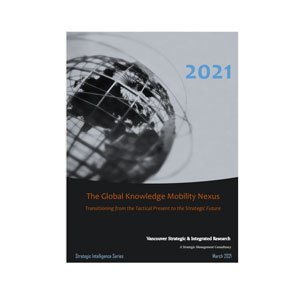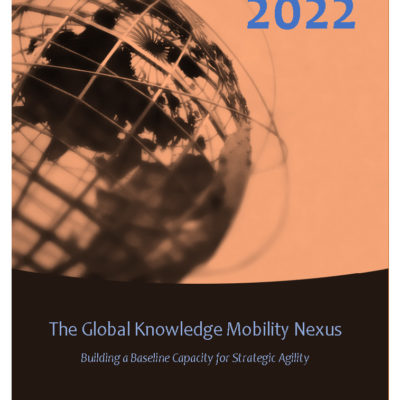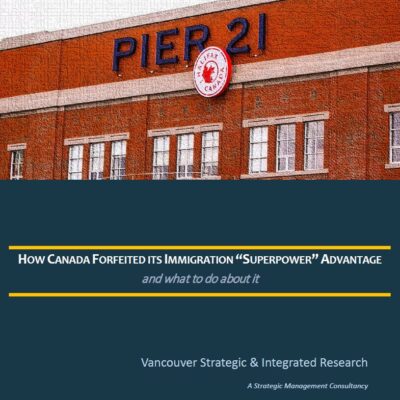Description
Global decision-makers are struggling with the challenge of responding to the COVID-19 pandemic and transitioning to a more resilient future. The COVID-19 crisis underscores the urgency of developing a global mindset to prepare for “over the horizon” threats. With that in mind, The Global Knowledge Mobility Nexus establishes an interpretive framework that public and private organizations can use to better understand the intersecting megatrends and emerging change drivers that are shaping the 21st century.
As a forward-looking document, this strategic intelligence brief is designed to support foresight activities including environmental scanning and scenario planning. It is organized into three parts that correspond with a different megatrend.
How this Strategic Intelligence Brief is Structured
Part One surveys the geopolitical shifts in six world regions that are disrupting global power relations and the traditional understanding of international governance systems. The analysis also considers how engagement on strategic issues like public health security and global mobility conspire to create new sources of geopolitical competition and cooperation.
Part Two reviews the different ways in which various global mobility networks were disrupted in 2020 as result of the COVID-19 pandemic. It also considers how a four-pronged agile governance framework can be used to better understand the reconfiguration of global mobility networks in 2021 and beyond.
Part Three assesses how the COVID-19 pandemic has impacted cities as frontline actors in the global emergency response. Multiple dimensions of contemporary urbanization are examined to gain fresh insight to the strategic role of municipal leadership in managing risks and opportunities in the 21st century.
The Annex comprises a comprehensive index inventory that you can use to conduct your own environmental scanning and foresight activities.
Enterprising organizations that understand these forces can better anticipate the cascading effects of disruptive change and establish a solid basis for complex problem solving.



